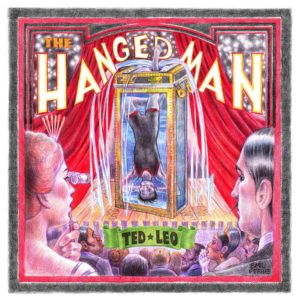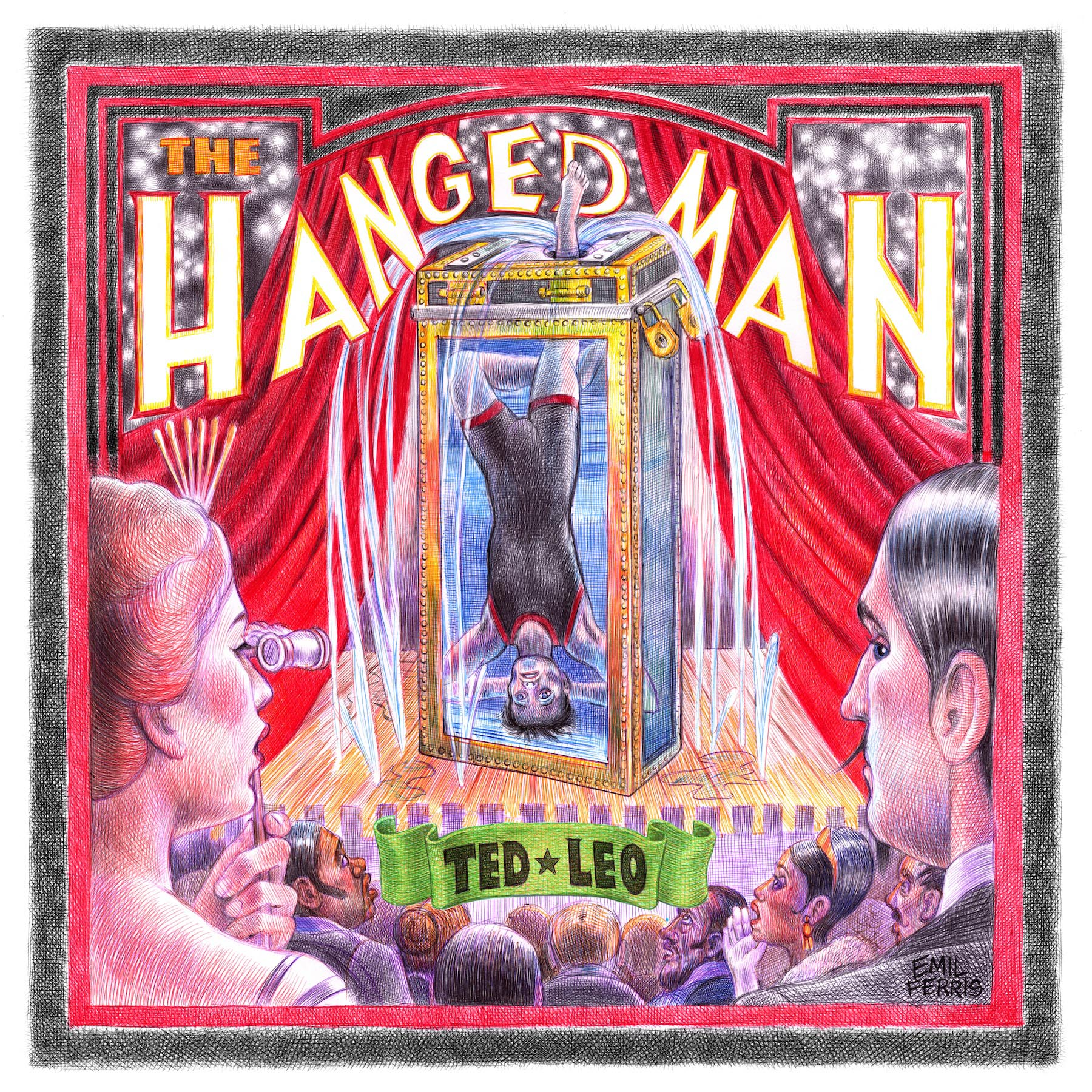Ted Leo
The Hanged Man
SELF-RELEASED
7/10
The arrival of The Hanged Man puts a boot-stomp on the near-silence distinguishing Ted Leo over the past seven years. Leaving aside his collaboration with Aimee Mann as The Both, we haven’t heard a full-length effort from the East Coast punk eminence since 2010’s The Brutalist Bricks. A lot has happened to Leo since then, but it’s worth noting that he’s been through a dark patch since his last release, so it’s not fair to expect him to throw us another “Where Have All the Rude Boys Gone?,” his joyous ode to The Specials from 2003’s vital Hearts of Oak.
If you’re not up to speed on Mr. Leo, here’s the deal: He writes mod-infused electric guitar–driven rock songs in the vein of the Stiff Records roster. Sometimes you get a little Thin Lizzy blast of guitar, but his core influences arise from mid to late ’70s pub and punk rock. He knows how to pay tribute but he also knows how to write a song. He’s got serious power in his voice, and the way he makes you sing along makes you feel like anthemic rock music doesn’t have to suck—that in fact it might be a genre with plenty of life left in it.
So, with all that said, The Hanged Man goes every which way. He’s got backup singers, horns, strings, and a bevy of new approaches. What works best is Leo and his electric guitar blaring out hook-fueled, emotive, punk-inspired rippers in the vein of poets Bragg/Strummer/MacGowan (“Lonsdale Avenue,” the slim and powerful “Run to the City,” and the album’s best song, the immediate “You’re Like Me”).
The Hanged Man’s bustling ambition means that not every song clicks—the programming beats tacked on to “Gray Havens” feel superfluous and “The Little Smug Supper Club” is maybe too clever in its snappy early-Costello wordplay—but minor missteps aside, this is an album of successes. The more emotionally wrought material (the burn-it-all-down vibe of “Let’s Stay on the Moon” finds redemption in the layered, gospel-touched harmonies at the end) fares best, and it’s nice when he shows off his love of late-period Beatles with a song like “William Weld in the 21st Century”; with “Can’t Go Back,” you probably won’t hear a more a spirited take on The Jam from Paul Weller himself. Let’s hope this album of heart-wrenching soul music keeps Leo up on the stage where he belongs.









